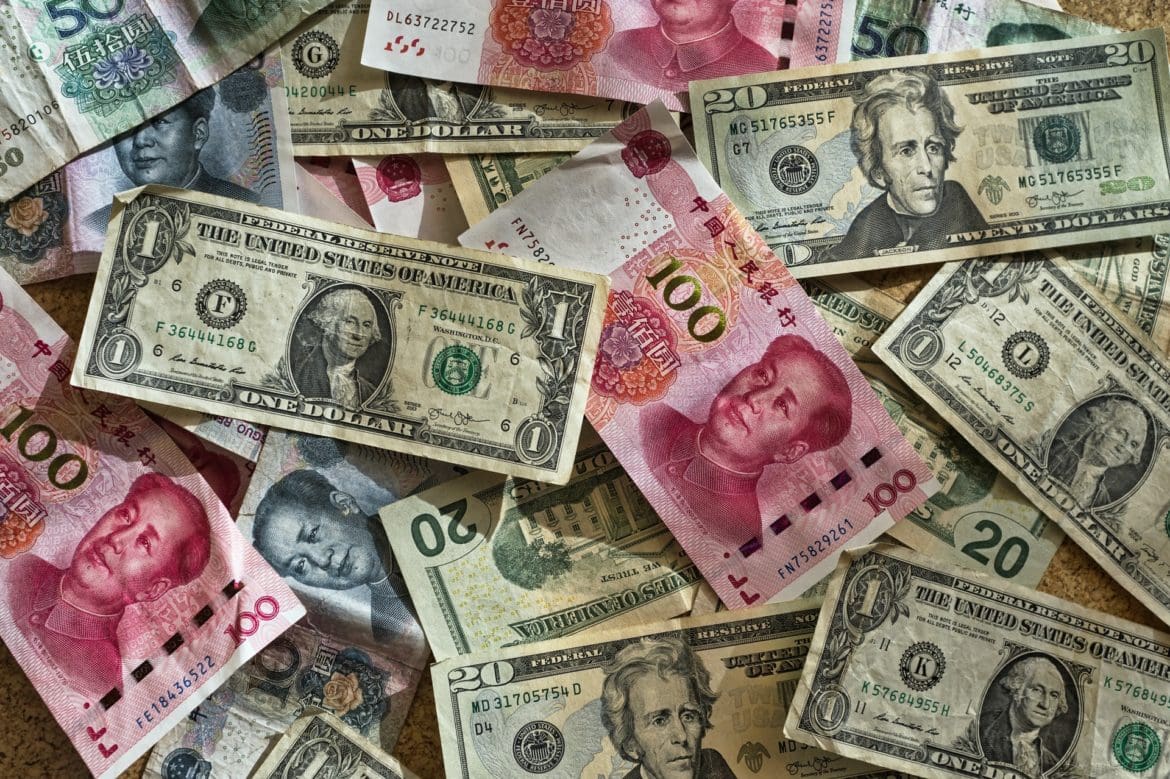
The NYSE (New York Stock Exchange) has rolled back its order delisting three Chinese telecom companies. The unusual turnaround has led market participants to ask if this suggests a forthcoming improvement in US-China relations under the Biden administration?
On 31 December, the NYSE had said that it would delist China Unicom, China Mobile, and China Telecom to comply with one of President Trump’s executive orders. The order, which was signed in November, bars Americans from investing in companies deemed to be connected to the Chinese military. The order comes into effect next Monday.
NYSE scraps order to delist Chinese companies
However, after initially complying with Trump’s diktat, the NYSE has done an about-turn on delisting the three Chinese companies. In its brief statement, the NYSE said that “In light of further consultation with relevant regulatory authorities in connection with Office of Foreign Assets Control FAQ 857,” and that it “no longer intends to move forward with the delisting action in relation to the three issuers.”
It added, “At this time, the Issuers will continue to be listed and traded on the NYSE. NYSE Regulation will continue to evaluate the applicability of Executive Order 13959 to these Issuers and their continued listing status.”
The shares rise after NYSE scraps the order
As expected, these three shares rose sharply following the NYSE order. China Unicom, China Mobile, and China Telecom shares respectively rose 8.5%, 5.1%, and 3.4% in Hong Kong trading today. Notably, China had vowed retaliation after the NYSE announced the delisting of shares.
What would the delisting of Chinese companies mean?
Before we look at the implications of the NYSE’s decision to scrap the order to delist Chinese companies and the outlook for US-China relations, let’s analyse what the delisting of Chinese companies actually meant. Since it would have been an involuntary delisting, all the investors would have held the same number of shares as before the delisting.
However, instead of trading on the regular stock markets, these stocks would then have traded on the OTC (over the counter) market. Since the trading volumes in OTC markets are much lower than those in regular markets, the price discovery is not efficient. Also, the bid-ask spreads are higher in OTC markets which means higher trading costs.
Would the US delist Chinese companies?
In December, the US House of Representatives passed the Holding Foreign Companies Accountable Act. The Act was passed by the Senate in May. Under the Act, any company that is controlled by a foreign government would be delisted from the US markets. Also, the Act has a provision to delist foreign companies if they don’t comply with the Public Accounting Oversight Board audits for three consecutive years.
Would Biden go ahead with the delisting of Chinese companies?
To be sure, the Act does not name China but is broad-based and covers all foreign companies. The Senate passed the Act a month after the accounting scandal at Chinese company Luckin Coffee was revealed – US investors lost billions of dollars when Luckin Coffee’s shares plummeted.
The Act is yet to be signed by President Trump. President-elect Joe Biden would have to take action on the Act once he is inaugurated later this month. However, Biden is not expected to be any soft on China either. While he may not go ahead with delisting all Chinese companies as Trump had previously threatened, he would take a tough line on some of the other aspects. Biden has hinted that he would take allies along in devising a common strategy against China.
Decoupling of US-China relations
Under the Trump administration, the process of economic decoupling of the US and Chinese economies began. However, any move to delist Chinese companies would hit both countries.
There are more than 200 Chinese companies listed on US stock markets with a combined market capitalisation of over $2 trillion. US investors made good returns on many Chinese companies like Alibaba, NIO, and Baidu. On the other hand, Chinese companies managed to lower their cost of capital as the kind of valuation premium that Chinese companies are getting on the US markets might not be available in other markets. This holds especially true for Chinese tech and electric vehicle companies.
What to expect from Chinese companies’ shares?
Chinese stock markets have underperformed global stock markets for more than a decade now. It is the only major stock market that is below its 2007 highs. However, Chinese stock markets might outperform in the next decade. The country has addressed the pandemic much better than the developed world, despite the fact that the outbreak began in the country. It is the only major economy that likely expanded in 2020. The recent investment deal between China and the European Union is also a sign of China’s growing clout, despite souring relations with the US.
That said, investors in Chinese companies may now have to live with new risk. The political risks of investing in Chinese companies have increased amid US-China tensions. Also, Chinese President Xi Jinping now wields a lot of power that might be detrimental for investors.
Jack Ma is reportedly missing
After his rhetoric attacking the Chinese financial system, Alibaba’s co-founder Jack Ma has not been seen in public for two months. The country is also investigating its tech giants for antitrust issues. While tech companies are facing anti-monopoly investigations in developed markets, events in China may move far more quickly as it seeks to cut giants such as Tencent and Alibaba down to size, although the authorities will be wary of damaging the profitability of firms previously considered to be “national champions”.
US-China tensions are the key reality and things might not change much irrespective of who occupies the White House. There is bipartisan support to take on what is seen as an aggressive China, even if the approaches might differ between the different US administrations.



Question & Answers (0)